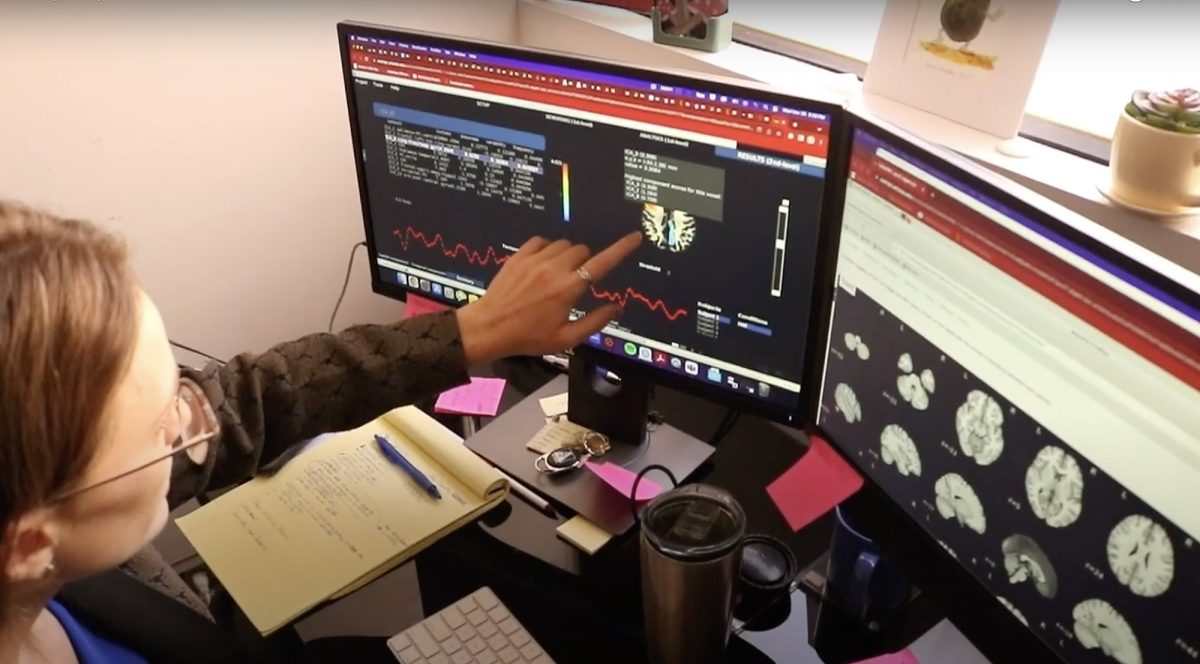In Pima County, 1,574 people are homeless, according to the Arizona Housing Coalition.
Local organizations, Felicia’s Farm and Casa Maria are aiming to help feed Pima County’s neediest.
Casa Maria, located at 401 East 26th Street, opened in 1981 and has served hungry Tucsonans 363 days a year. The soup kitchen originally only served around 90 people per day; currently Casa Maria feeds over 450 people and 120 families every morning.
The soup kitchen operates solely through volunteers, and among them is Cesar Aguirre. He works and lives at Casa Maria with his two young daughters.
“It’s really helped to change and shape my beliefs. Before coming here before I got custody of my kids, I was involved in gangs, drugs, sold drugs, moved drugs, did a bunch of really negative things in my life,” Aguirre said. “I had to start making some changes I wanted my kids to have a better life. So this place kind of intersected in my life at the right time.”
Beyond the soup kitchen you’ll find another army of support, at Felicia’s Farm, located at 3761 East River Road, provides 100 percent of the produce to Casa Maria.
Tucson native, David Cutler, planted this four- acre farm in North Tucson to honor the memory of his wife Felicia whose motto was to “feed people and teach them to feed themselves.”
Volunteer Alex Benecomo has been coming to the farm for seven months, and was just hired as the new Volunteer Coordinator for Felicia’s Farm.
“I just fell in love with this place, I fell in the love with the people and what we do here,” Benecomo said.
Volunteers help to grow fresh organic vegetables and raise chickens on the farm that donates 125 dozen eggs and 200 pounds of produce to the soup kitchen each week.
Pima County accounts for 16 percent of Arizona’s total homeless population, Felicia’s Farm aims to feed those families. This is a big job for the dozen volunteers who rely on grants and donations to keep this farm operating.
Volunteer services come full circle for Sofia Forier-Montes, Felicia’s Farm Manager, who does this because it’s her passion.
“My goal is to own my own farm one day, but until then this is really great. And it’s nice to help the community while practicing farming,” Forier-Montes said.
From rural to urban, Casa Maria is able to offer healthier options for their customers because of Felicia’s Farm.
Head Coordinator at Casa Maria, Brian Flagg, has run the soup kitchen for 30 years and is grateful for the donations from Felicia’s Farm.
“Felicia’s Farm is great because people here in our neighborhood actually get to eat organic produce and eat organic eggs we hard boil most of them and they’re in lunches and so people are actually eating good organic produce,” Flagg said.
The produce donated by Felicia’s Farm offers healthier options to replace the high calorie and high sugar food that’s often donated.
More than food, Casa Maria is about finding a new beginning.
“It really has helped me to teach my kids that there is another way of life out there, it’s not all about making money and it’s not all about how much you can gain, but rather how much you give and what you leave behind,” Aguirre said.
The relationship between Casa Maria and Felicia’s Farm has offered a true farm to table method that has improved the health of the needy.
According to the Department of Economic Security, the percent of Arizona’s homeless population in Pima County has dropped by nearly half in the last five years.
Yet still over 1,000 are on the streets with empty bellies, these two organizations have worked hard to feed those on the street.
Alexa Wallen and Gabby Goduco are reporters for Arizona Sonora News, a service from the School of Journalism with the University of Arizona. Contact them at [email protected] and [email protected]
Click here for a word version of this story and high-resolution photos and video.







